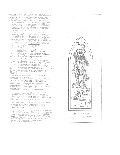 was Dr. Linebarger, and he was too self-conscious to write again under that pseudonym. Instead, in 1949, he published ATOMSK, an espionage thriller with a Russian setting and a James Bondish hero, as Carmichael Smith.
was Dr. Linebarger, and he was too self-conscious to write again under that pseudonym. Instead, in 1949, he published ATOMSK, an espionage thriller with a Russian setting and a James Bondish hero, as Carmichael Smith.
The dedication alone, in Russian ("To the Russian people, who are great and will one day be free.") was enough to inspire hostile reviews in the Soviet Press. Dr. Linebarger's PSYCHOLOGICAL WARFARE, the classic in its field was first published in 1948.
Still nothing on 'Scanners'. When Dr. Linebarger heard in 1949 that H.L. Gold was starting Galaxy, he sent the story to Gold. But Gold also couldn't use the story -though he doesn't remember rejecting it.
"As sort of a last hope," his widow explains,
Dr. Linebarger submitted the story to
William Crawford at Fantasy Book, where it finally found a home. The blurb was appreciative, is not insightful:
"This story deals with science fiction's oldest subject - space travel. Yet the author's treatment of the subject is so completely different that it makes Scanners one of the most outstanding stories to appear in any magazine:"
Thus did 'Scanners Live in Vain' appear -and nearly in vain it was too. As Pohl said, the story "dropped out of sight." And Dr. Linebarger was in no position to follow up on it with further stories in any case. He didn't seem in the mood for fiction writing -a fourth mainstream novel languished in first draft because he wasn't satisfied with it.
He married his second wife, Genevieve Collins, who was one of his students at Johns Hopkins, on Mar. 20, 1950. And before the year was out, he had been summoned overseas - first to advise the British in their campaign against the Communists in Malaya, then (as Colonel in the U,S. Army Reserve) as a consultant to U.S. forces in Korea. As far as science fiction was concerned , he was "hors de combat."
Although 'Scanners Live in Vain' had appeared in a marginal publication with hardly any circulation, the story had not gone entirely unnoticed before Dr.Linebarger's departure for Malaya and Korea.
Two who immediately recognized the talents of Cordwainer Smith, although having no idea who he was, were Sam Moskowitz and Frederik Pohl.
Moskowitz, ironically, never cared for the S.F. Dr. Linebarger wrote after 1950. But as soon as he had read 'Scanners' in Fantasy Book, he wrote to editor William Crawford praising the story, then tried to interest T.E. Dikty in including the piece in his annual BEST SCIENCE FICTION anthology. Dikty wasn't interested.
Document scaning and conversion provided by Peter Barker
Updated May 12, 2015. If you have a comment about these web pages please send a note to the Fanac Webmaster. Thank you.